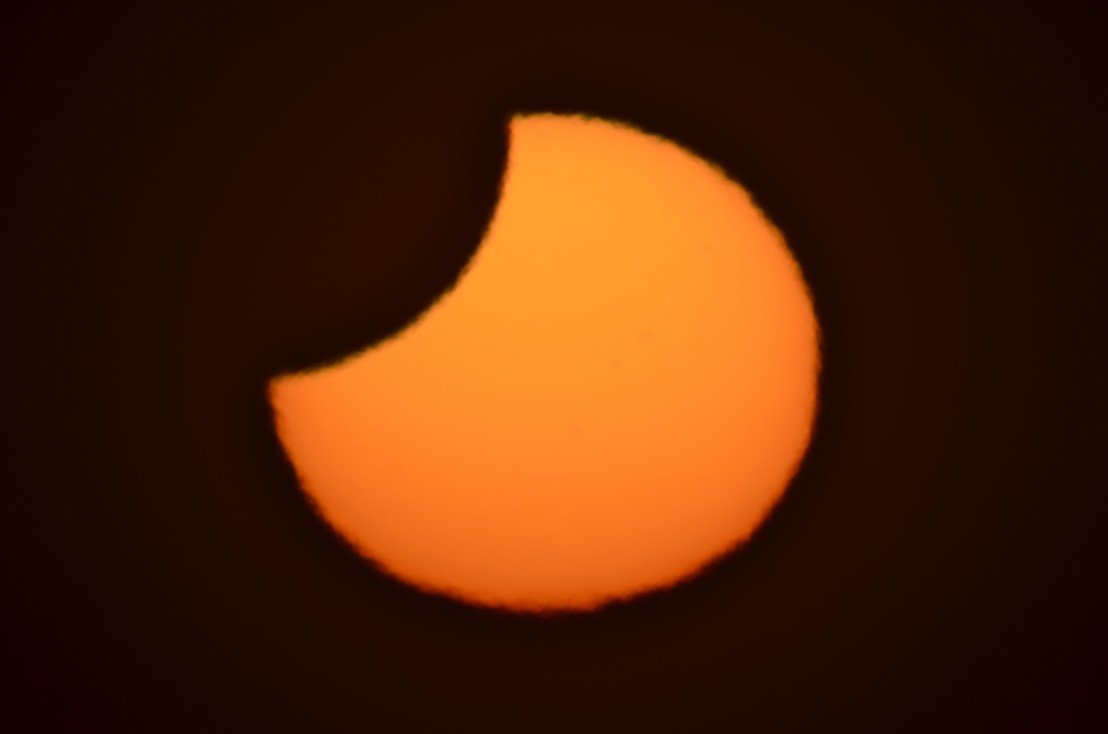Bible Sun Darkened
- Bible Sun Darkened
- The Sun Will Be Darkened
- Bible Sun Will Be Darkened
- Revelations Sky Turns Dark Kjv
- Revelation Sun Darkened
Isaiah said “Do you want the sun to go ahead 10 degrees?” Hezekiah said “It is nothing for the sun to go ahead 10 degrees, but let the shadow return backward 10 degrees.”. “Immediately after the tribulation of those days the sun will be darkened, and the moon will not give its light, and the stars will fall from heaven, and the powers of the heavens will be shaken. Psalm 18:15 ESV / 10 helpful votes Helpful Not Helpful. The darkness has been described as nature's sympathy with the suffering of the Lord, but that is a pagan conception of nature, a conception of nature as having some consciousness apart from God and out of harmony with His work. It has been said that the darkness was brought about by an act of God and was expressive of His sympathy with His Son. I immediately admit that that is an appealing idea and has some element of truth in it, in that we may discover the overruling of His government; but. Barnes' Notes on the Bible. The sun and the moon shall be darkened - This may be, either that they shall be outshone by the brightness of the glory of Christ, or that they themselves shall undergo a change, whereof the darkness at the Crucifixion was an image. An ancient writer says; “As in the dispensation of the Cross the sun failing, there was darkness over all the earth, so when the.
Theτοῦ(tou)
Article - Genitive Masculine Singular
Strong's Greek 3588: The, the definite article. Including the feminine he, and the neuter to in all their inflections; the definite article; the.
sun
ἡλίου(hēliou)
Noun - Genitive Masculine Singular
Strong's Greek 2246: The sun, sunlight. From hele; the sun; by implication, light.
was darkened,
ἐκλιπόντος(eklipontos)
Verb - Aorist Participle Active - Genitive Masculine Singular
Strong's Greek 1587: To fail, die out, come to an end, be defunct. From ek and leipo; to omit, i.e. cease.
and
δὲ(de)
Conjunction
Strong's Greek 1161: A primary particle; but, and, etc.
the
τὸ(to)
Article - Nominative Neuter Singular
Strong's Greek 3588: The, the definite article. Including the feminine he, and the neuter to in all their inflections; the definite article; the.
veil
καταπέτασμα(katapetasma)
Noun - Nominative Neuter Singular
Strong's Greek 2665: From a compound of kata and a congener of petomai; something spread thoroughly, i.e. the door screen in the Jewish Temple.
of the
τοῦ(tou)
Article - Genitive Masculine Singular
 Strong's Greek 3588: The, the definite article. Including the feminine he, and the neuter to in all their inflections; the definite article; the.
Strong's Greek 3588: The, the definite article. Including the feminine he, and the neuter to in all their inflections; the definite article; the.temple
Bible Sun Darkened
ναοῦ(naou)
Noun - Genitive Masculine Singular
Strong's Greek 3485: A temple, a shrine, that part of the temple where God himself resides. From a primary naio; a fane, shrine, temple.
was torn
 ἐσχίσθη(eschisthē)
ἐσχίσθη(eschisthē)
Verb - Aorist Indicative Passive - 3rd Person Singular
Strong's Greek 4977: To rend, divide asunder, cleave. Apparently a primary verb; to split or sever.
down [the] middle.
μέσον(meson)
Adjective - Accusative Neuter Singular
Strong's Greek 3319: Middle, in the middle, between, in the midst of. From meta; middle (neuter) noun).
Verse 45. - And the veil of the temple was rent in the midst. This was the inner veil, which hung between the holy place and the holy of holies. It was rich with costly embroidery, and very heavy. Before the willing surrender of life told of in the next versa (46), our Lord spoke twice more. These fifth and sixth words from the cross are preserved by St. John (John 19:28, 30). The first of these, 'I thirst ' - an expression of bodily exhaustion, of physical suffering - was predicted as part of the agony of the Servant of God (Psalm 69:21). The second, 'It is finished!' tells that 'the earthly life had been carried to its issue. That every essential point in the prophetic portraiture of Messiah had been realized. The last suffering for sin had been endured. The end of all had been gained. Nothing was left undone or unborne' (Westcott).
Luke 23:45 NLT
Luke 23:45 ESV
Luke 23:45 NASB
Luke 23:45 KJV
Luke 23:45 Bible Apps
Luke 23:45 Biblia Paralela
Luke 23:45 Chinese Bible
Luke 23:45 French Bible
Luke 23:45 German Bible
Alphabetical: And because curtain for in obscured of shining stopped sun temple the torn two veil was
NT Gospels: Luke 23:45 The sun was darkened and the veil (Luke Lu Lk) Christian Bible Study Resources, Dictionary, Concordance and Search Tools
The Sun Will Be Darkened
Question: 'What does it mean that the Shulammite had dark skin (Song of Solomon 1:6)?'Answer: The Shulammite, the woman Solomon loves, refers to herself as having dark skin: “Do not gaze at me because I am dark” (Song of Solomon 1:6, ESV). In the NASB, she is “swarthy”; in the KJV, she is “black.”
Some have suggested that the Shulammite woman was a dark-skinned woman, perhaps of African descent. However, a more likely answer is found in the very same verse. Immediately following the mention of the woman as “dark,” we read, “Because the sun has looked upon me” (ESV). In the NIV, it’s clearer what she means: “Because I am darkened by the sun.” And the rest of the verse explains why the Shulammite was in the sun: “My mother’s sons were angry with me / and made me take care of the vineyards; / my own vineyard I had to neglect” In other words, she was forced to work outside in the sun and had not taken care of her skin as she preferred.
In modern Western culture, many women go to great lengths to tan and darken their skin. However, the opposite was true of women in the ancient Near East. Dark or tanned skin was undesirable because it indicated a woman had spent significant time working in the sun, something that servants or poor women did. More affluent women would not labor in the sun; they would stay indoors more or have nicer clothing that covered their skin.
The Shulammite woman did not want to be stared at because of her tanned skin. In Song of Solomon 1:5 we read, “Dark am I, yet lovely, / daughters of Jerusalem, / dark like the tents of Kedar, / like the tent curtains of Solomon.” The tents of Kedar were made from the wool of black goats. The curtains of Solomon is a difficult phrase to render from the Hebrew text. Many believe the correct understanding is instead “the tents of Salma.” If so, the word picture is fitting. The Salma people lived in the same general region as Kedar and likely also constructed their tents with black wool. Otherwise, the curtains of Solomon were likely purple, the color of royalty, a color that would not fit the description in verse 6. Regardless, the Shulammite is telling the other women not to think poorly of her because of her tanned skin.
Some have also sought meaning in Song of Solomon 1:6 based on the identity of Shulammite. The term Shulammite
Bible Sun Will Be Darkened
has been interpreted in different ways. Two of the most likely interpretations are that Shulammite means “O perfect one” or that it refers to an area called Shunem (as the LXX chooses). If this latter interpretation is correct, the Shulammite was from Shunem, a village near Jezreel inhabited by the Jews during Solomon’s time. The woman would likely have had an olive complexion, though darker than some due to her working out of doors.Revelations Sky Turns Dark Kjv
Though the woman in Song of Solomon had some concerns about her appearance, she was clearly loved by Solomon and desired by him. The Song of Solomon offers a great example of how, though imperfect, a man and woman accept and love one another unconditionally and pursue love and intimacy in the context of marriage.
Revelation Sun Darkened
